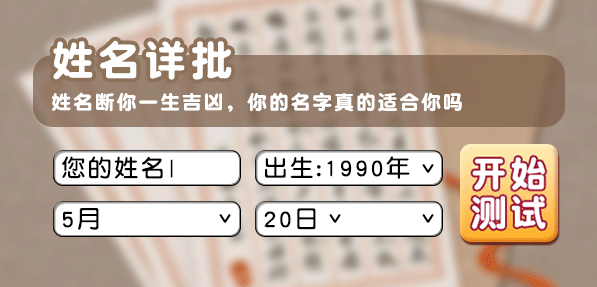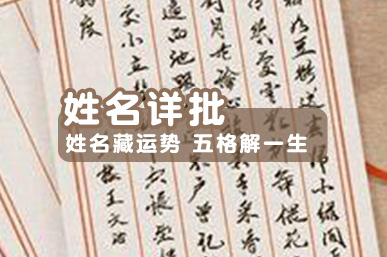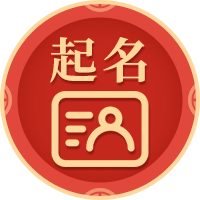姓名的英文(姓名的英文书写格式是怎样的)

英语中的昵称
英语中的昵称
昵称(term of endearment, pet name)在西方语言中非常普遍,好多人名都有其对应的昵称。如果对昵称及其构成规则不太了解的话,那在阅读理解的时候就会遇到许多困惑。
所谓的昵称,当然是用来表示与说话人的亲昵关系。西方语言中的昵称现象非常普遍。我们中国文化受儒家尊卑思想的影响很深,在称呼他人的时候很少使用昵称。所以,掌握英语昵称其实是英语学习中的一个难点,也是中国读者阅读外文翻译成中文的小说的时候的一大难点。
美国人尤其喜欢有昵称,别人称呼他用他的昵称,他自己称呼自己也用昵称,比如美国第四十二任总统,正式名称是William Jefferson Clinton,但人们一般都称他为Bill Clinton,他自己也用Bill来署自己的名。Bill就是William的昵称。
(Bill Clinton)
表示“警察”这个意义的英语单词有:policeman/constable, cop/copper, bobby/bobbie, peeler。这些词用在不同的语境中,policeman/constable可用在所有场合,cop/copper和peeler都是俚语(slang),bobby/bobbie是口语(colloquial)。
非常有意思的是,bobby/bobbie和peeler这两个词都来自于Sir Robert Peel(罗伯特·皮尔爵士)。《韦氏新传记词典》(Webster’s New Biographical Dictionary)在有关他的词条说,这位仁兄曾是英国的内政大臣(Home Secretary),他在1812-1818年担任Chief Secretary for Ireland(爱尔兰事务首席大臣),期间组建了Irish constabulary(爱尔兰警察体系)。他在1829年组建了Metropolitan Police (伦敦警察厅/大都会警察厅,也就是有名的“苏格兰场Scotland Yard”)。
(Sir Robert Peel)
有意思的是,由他的姓转化而来的词peeler用在俚语中,俚语一般而言是贬义的,是底层社会使用的,而他的名字转化而来的词bobby/bobbie则是用在口语中,bobby就是他的名字Robert的昵称,那自然是亲切的。
究其缘由,可能和他负责组建的两支警察部队的任务和形象有关吧,当时的英国和爱尔兰之间总是有某种仇视(殖民和被殖民的关系),所以他组建的警察自然是要行使武力镇压之责,这难免给自己带来负面的形象,因而人们用他的姓来构成新词,而且这个peel本身就有“扒皮”的意思。而他在伦敦组建的警察队伍则是first disciplined police force in London(伦敦有史以来第一支纪律严明的警察队伍),那自然会受到人民群众的喜爱,所以人们用他的昵称来指称英国警察,这也算是人们对他所做贡献的最大肯定吧。这也真算是做好事青史留名,做坏事遗臭万年。
美国第十六任总统Abraham Lincoln(亚伯拉罕·林肯)的昵称是Honest Abe, 或Old Abe,他在美国太受尊敬了,所以人们不仅要昵称他Abe,还要在昵称前再加昵称Honest或Old。Honest(诚实的)的意思自不必说,这个Old很像咱们东北地区把最小的儿子或女儿昵称为“老儿子”“老姑娘”,表示极其喜爱之意。林肯有很多很多的名言,其中有一句最能表达他对诚实的坚守,他说You can fool all the people some of the time, and some of the people all the time, but you can’t fool all the people all the time.(你可以愚弄所有人于一时,也可以愚弄某些人于一世,但你绝不可能愚弄所有人于一世。)
(Abraham Lincoln)
美国第二十六任总统(1901-1909)Theodore Roosevelt(西奥多·罗斯福)的昵称是Teddy或Teddy Roosevelt。他的侄儿Franklin Delano Roosevelt(富兰克林·德拉诺·罗斯福)则是与美国开国总统华盛顿、废奴总统林肯齐名的伟大总统,所以人们干脆用FDR来尊称他,或许这种干脆用首字母来称呼某人,才是最大的昵称吧。
(Theodore Roosevelt)
寓意为“珍珠”的Margaret或Marguerite这样的名字可以缩短成Maggie, Meg, Madge,或者音变成Peg, Peggy以及Mamie这样的昵称。
一般而言,昵称都是把原来名字的部分音节截取下来即可。
在名字截取音节的过程中,有的词发生了音变,比如Robert的昵称变成了Bob,Bobbie,Bobby,而William的昵称变成了Bill或Billie, Billy.
Abigail的昵称是Abbey或Abby。
Alexander的昵称有Alec, Aleck, Alex, Alick。
James的昵称是Jim, Jimmie, Jimmy。
据说Elizabeth的昵称最多,有Bess, Bessie, Beth, Betsy, Betsey, Betty, Elsie, Lillian, Lisa(这个词有两个读音,’li:zə, ’laɪzə),Lizzie等。
当然也有短名字变成长名字的昵称,比如Ann的昵称就有Anita, Annetta, Annette, Annie。Jane的昵称Janet。
上述昵称都是一些常用名的昵称。我们在和使用英语的人的交往中,可以按照昵称构成的规则用亲昵的方式称呼对方。这只需要把握下面基本构成方式就可以自由运用了。
构成方式:
1.截取名字的某一个音节,比如Anthony的昵称Tony,Thomas的昵称Tom,Tommy, Tommie.(古英语中,以Th打头表示人名和地名的单词中的h不发音,比如Thailand, Thames等,因而Thomas的昵称中就没有h这个字母,因为它在原本的单词中不发音。)Timothy的昵称是截取首音节Tim,再在这个昵称后面加上字母y构成新的昵称Timmy,Anthony的昵称是截取最后一个音节Tony。
2.截取某一个音节以后再在这个词后面缀上表示亲密关系的a, ie,y等音节。
当然要特别明确的是,昵称只能是名字的昵称。“行不改姓”,姓是没有昵称的哦。
人教版八年级下册Unit2英语单词,知识点汇总和写作指导!
一、重点短语 1. Clean-Up Day 清洁日 2. an old people’s home 养老院 3. help out with sth. 帮助解决困难 4. used to 曾经… … ;过去_ 5. care for 关心;照顾 6. the look of joy 快乐的表情 7. at the age of 在......岁时 8.clean up 打扫(或清除)干净 9. cheer up (使)变得更高兴;振雀 10. give out 分发;散发 11. come up with 想出;提出 12. make a plan 制订计划 13. make some notices 做些公告牌 14. try out 试用;试行 15. work for 为…工作;为…. 效力 16. put up 建造;举起;张贴 17. hand out 分发;散发;发给 18. call up 打电话;召集 19. put off 推迟;延迟 20. for example 比如;例如 21. raise money 筹钱;募捐 22. take after 与......相像;像 23. give away 赠送;捐赠 24. fix up 修理;修补;解决 25. be similar to 与……相似 26. set up 建立;设立 27. disabled people 残疾人 28. make a difference 影响;有作用 29. be able to 能够 30. after-school reading program课外阅读项目 二、重点句型 1. The boy could give out food at the food bank. 这个男孩可以在食品救济站分发食物。 2. Clean-Up Day is only two weeks from now.清洁日离现在仅仅两周的时间。 3. He volunteers at an animal hospital every Saturday morning. 每周六上午,他都在一'家动物医院当志愿者。 4. Last year, she decided to try out for a volunteer after-school reading program. 去年,她决定去参加一个课外阅读项目的志愿者的选拔。 5. . . . you can see in their eyes that the y? re going on a different journey with each new book. ……从他们的眼睛里你可以看到他们正在进行每本不同的新书之旅。 6. I want to put off my plan to work in an animal hospital until next summer. 我想把我在动物医院工作的计划推迟到明年夏天。 7. Most people today are only worried about getting good jobs to make lots of money.现在的大部分人只是为找一份能挣许多钱的好工作而着急。 8. You helped to make it possible for me to have Lucky. 在你的帮助下,我才有可能拥有“幸运儿”。 |
三.重要知识点解析 Section A 1. You could help clean up the city parks.你可以帮助打扫城市公园。 【解析1】help v →helpful 1). help sb. to do sth. 帮助某人做某事。 2). help oneself ( to )自用(食物等)。 3). help sb. out 帮助某人克服困难,渡过难关、解决问题、完成工作。 4). with the help of 在……帮助下。 5). help sb. with sth. 帮助某人做某事。 6).Can’t help doing 情不自禁做.... 【解析2】clean up 把……打扫干净(v. + adv.) clean up the table = clean the table up It’s your turn cleanup the kitchen. 2.The girl could visit the sick kids in the hospital to cheer them up. 女孩可以去医院看望生病的孩子们,让他们振作起来。 【解析1】sick /ill : (1) sick adj.“生病的”,既可放be (系动词)后作表语, 也可放n.前作定语。 be sick of …“讨厌;厌恶……” sick person = patient“病人” (2) ill adj.“生病的”,只能放be (系动词)后作表语, be ill in hospital 生病住院 ill → illness n.“病;疾病” You look very tired. You must be sick. (= ill) He had a sick mother. 他有一位生病的母亲 【解析2】in the hospital 与in hospital (1) in the hospital“在医院” 指人在医院里,允许是在医院上班,允许是到医院看望病人等; (2) in hospital “在医院;住院” 指生病住院。 类似的短语有: in the bed“在床上”,也许是蹲在床上或站在床上; in bed“在床上”指躺在床上 Tom is ill and staying in bed. 【解析3】cheer up 使振奋,使高兴的(v. +adv) cheer sb. up =make sb. happy 使某人高兴 cheer me up 使我高兴 You could visit sick children in the hospital and cheer them up. 3. The boy could give out food at the food bank. 男孩可以在食物站分发食物 【解析】give out =hand out分发(v. +adv) hand out bananas give out sth to sb. 分….给某人 Our teacher begins give out our test paper. 【短语】:give in 屈服 give back=return 归还 give a speech 发表 give sb. a call 给……打电话 give away 赠送give away money to kids give sb. a hand =help sb. 帮助某人 give up doing sth =stop doing sth放弃做某事give up smoking 放弃吸烟 give sb. sth = give sth to sb. 给某人某物 give me money 给我钱=give money to me 给我线 You shouldn’t give up your hope. Everything will better. 4. We need to come up with a plan for the City Park Clean -up Day. 我们需要为城市公园清洁日想出一个计划。 【解析】come up with =think up 想出 catch up with 赶上 追上 【短语】: think about 考虑 think of 想起 think over 仔细考虑 【谚语】 Think before you act 三思而后行 【拓展】v+up with 构成的短语: catch up with 赶上;追上 keep up with 跟上;跟、、、、、保持联系 put u with 容忍;忍得住 end up with 结束;以.......而结束 We need come up with a plan. 5. Oh , what did they ask you to help out with? 哦,他们让你帮助做些什么? 【解析】help out 帮助;帮助......出来 help sb. out 使某人脱离困境 He gave away plenty of money to the people in the earthquake area to help them out . 6. They told me stories about the past and how things used to be. 他们给我讲过去的故事,并告诉我过去事情是什么样子的。 【解析1】 (1) use v.使用→useful adj. 有用的 use up 用完 Studying English is useful. (2) use sth to do sth 用某物做某事 We use Internet to find information. (3) used to do sth 过去常常做某事,表示过去做过的事现在已经不做,只用于过去时态。 My mother used to tell us story when we were young. (4) be /get used to doing sth 习惯于做某事 My grandpa is used to living in country. (5) be used to do sth 被用来做某事=be used for doing sth Stamps is used to post letters. He used to wear glasses . But now he is used to wearing contact lenses. 他以前常戴(框架)眼镜,但现在习惯戴隐形眼镜。 7. That sounds interesting. 那听起来挺有趣。 【解析】sound (1)n声音 We heard a strange sound. 【辨析】Sound/noise/voice ⑴sound(n.)指自然界中所有的声音,可指悦耳的声音也可指噪音。 ⑵noise一般指很响的,刺耳的声音,即喧闹,嘈杂声等。 ③voice指人通过发音器官发出的声音(包括说话,唱歌等)。 Mary has a beautiful voice. 玛丽的声音很美。 Don't make such a noise. 别这样大声喧哗。 — Did you hear any strang noise when the quake happened? — No, I was in my garden with my flowers and was enjoying the beautiful sound of my birds at that time. (2) vi.听起来,似乎,其后加表语(形容词,介词短语,名词) —How does the music sound to you? 这音乐你听起来怎么样? —It sounds beautiful. 它听起来很美。 8. Yeah, a lot of old people are lonely. 是的,很多老年人都很孤独。 【解析】alone / lonely 辨析: (1)alone = by oneself adj. 单独的,指无人陪伴的客观事实,不带感彩。 He often walks alone to home . (2)lonely ①指人孤独的,寂寞的,强调主观感受;②也可指某个地方是荒凉的 The old man lives alone,but he never feels lonely _. 9. We should listen to them and care for them . 我们应该倾听他们说话并且关心他们。 【解析】care for 照看;照顾;照料 Many students in our school care for the old and they usually offer their seats to them on buses. 【拓展】care的短语总结 take care =be careful v.当心,小心 take care of =look after v.照顾,照料,照看 take care of 处理,做完 care for v.照顾,照看 10. Mario Green and Mary Brown from Riverside High School give up several hours each week to help others. 来自河畔高中的马里奥。格林和玛丽每周都会花几个小时去帮助别人。 【解析1】give up 放弃 give up doing sth=stop doing sth 放弃做某事 I find it too difficult to learn English well. I want to give it up . 【解析2】several 可作定语,表示“几个”: = a few Several boys were injured. 有几个小伙子伤了。 My friend speaks several languages. 我的朋友能讲几种语言 11. He volunteers at an animal hospital every Saturday morning. 他每周六早上在动物医院做志愿者。 【解析】volunteer v 志愿 n 志愿者 volunteer to do sth 志愿做某事 Jack volunteered to carry the water. 12. ... But I want to learn more about how to care for animals... 但是我想学习更多的关于如何照顾动物的知识 【解析】 “疑问词+不定式”作及物动词的宾语, 【记】:I don’t know what to do. I don’t’ know how to do it . I don’t know what to do with it. 【拓展】 “特殊疑问词 + 不定式” 与 “wh – 从句的转换。 转换时只需在疑问词后加主语(与主句主语一致),并将不定式改成 “should +v原形“做谓语。 I don’t know how to solve the problem. = I don’t know how I should solve the problem. I don’t know what to bring to the party. 13. I get such a strong feeling of satisfaction when I see the animals get better and the look of joy on their owners’ faces. 当我看到动物们变得更好,并且它们的主人的脸上呈现喜悦之情时,我有一种很强烈的 满足感。 【解析1】such 【解析1】(1)so …that 如此…..以致…… “So +adj.+ that” “如此……以至……” 引导结果状语从句 so后面接形容词、副词 He was so strong that he could lift the heavy bag. 【记】名前such,形副so,多多少少(many, much, few, little)都用so。 The girl is such a nice girl that we all want to help her. 【解析2】get better 变得更好 14. She could read by herself at the age of four. 她在四岁的时候就能够独自阅读。 【解析】at the age of 在......岁的时候= when sb. Was ... Years old. —Do you know Mu Yan? —Of course, He won the 2012 Nobel Prize four Literature at the age of 57. 15. Last year, she decided to try out for a volunteer after-school reading program. 去年,她决定尝试在一个课后阅读项目中做一名志愿者。 【解析】try out 尝试;实验 try v 试图,设法,努力 【拓展】 (1)try on 试穿 (2) try to do sth 努力做某事 【侧重尽力做】 (3) try doing sth 试图做某事 【侧重尝试做】 (4)try one’s best to do sth= do one’s best to do sth 尽某人最大努力做某事 We should try to eat much fruit. 16. She still works there once a week to help kids learn to read. 她仍然每周在那里工作一次,帮助孩子们学习阅读。 【解析】once a week 一周一次 【拓展】once = one time一次 twice= two times 两次 【注】:三次或三次以上用:“基数词+times” three times 三次 four times 四次 three or four times 三到四次 I chat with my friends online twice a week. 17. ...,but you can see in their eyes they’re going on a different journey with each new book,......, 但是你能从他们的眼睛里看到他们正随着每本新书在进行不同的旅行。 【解析】go on a journey = go on a trip去旅行 18. Volunteering here is a dream come true for me. 对于我来说,在这里做志愿工作使我梦想成真。 【解析】 come true 实现
If we Chinese work hard together. China Dream will come true . 【拓展】与come相关的短语: 【短语】come and go 来来回回 come from 来自 come back 回来 come out 出来 come on 加油,快点 come in 进来 come back 回来 come over 顺便来访 come true 实现 come up with 想出 19. I can do what I love to do and help others at the same time. 我不但可以做我自己喜欢的事,同时还可以帮助其他人。 【解析】at the same time 同时, This novel can make you laugh and cry at the same time. 20. However, few people think about what they can do to help others. 然而,很少有人会考虑他们能做些什么来帮助他人。 【解析1】however 然而 【辨析】however和 but 二者都意为“可是,但是”; ⑴ but是并列名词,连接两个并列分句,上下二句在总的意义上构成了对比。 Ireally don't like cheese, but I will try just a little this time. 我实在是不喜欢吃奶酪,但是这次我要尝一点。 ⑵ however不能直接连接两个分句,必须另起新句,并用逗号隔开。 It was raining hard. However, we went out to look for the boy. 雨下得很大,不过我们还是出去寻找那个孩子 【解析2】few 几乎没有 【注】 a few/ few (1)a few, few 用来修饰可数名词。 (2)a few “有一些”,表示肯定概念, few 几乎没有,表示否定意义。 The man has been here for many years, so he has a few friends. 这个人在这里住了很多年了,他有一些朋友。 I am a new comer here, so I have few friends here. 我刚来到这里,所以我在这里没有几个朋友。 a little/ little (1) a little, little 用于修饰不可数名词。 (2) a little “有一些”,表示肯定概念。 little “几乎没有”,表示否定概念。 There is a little water in the glass.杯子里有一些水。 There is little water in the glass, so you can’t drink any. 杯子里几乎没有水了,你不可能喝到水了。 21. There are many people who are less lucky than us . 有很多没有我们幸运的人。 【解析】less 较少的;较次的 To live a green life, we should try to save more energy and Produce less_ pollution. 【注】less 可用在部分双音节和多音节形容词和副词前,构成形容词和副词的比较级。 —— How far is Yuhua Middle School from here? ——It’s less than five minutes’ walk. 22.For example , we can make plans to visit sick children in the hospital or raise money for homeless people. 例如, 我们可以制定一些计划去看望医院生病的孩子们或者无家可归的人们筹钱。 【解析1】for example ⑴for example“例如”,一般只以同类事物或人中的“一个”为例,作插入语, 用逗号隔开,可置于句首、句中或句末。 For example,he is a good student. 例如,他就是个好学生。 ⑵ such as“例如”,用来列举同类人或事物中的几个例子。 可以和and so on 连用。 Boys such as John and James are very friendly. 像约翰和詹姆斯这样的男孩都很友好。 【解析2】 raise (raised; raised) v 募集;征集 raise money for... “为......筹款” 【解析3】 home n 家→homeless adj. 无家可归的 be home to … = be the home of sb. 成为…家园 a homeless boy 一个无家可归的男孩 We have only one Earth. It's our common home. 【拓展】由home构成的合成词: homeland n 祖国 hometown n 家乡 homework 家庭作业 homeless adj. 无家可归的 home-made adj. 自制的 【同类记忆】 careless 粗心的 hopeless 没有希望的 helpless 无助的 useless 没有用的 be home to sb. = be the home of sb. 是某人的家 【短语集锦】on one’s way home 在某人回家的路上 stay at home 呆在家里 go home 回家 at home 在家 get home 到家 You should do something to help helpless people. 23. Some people even stop doing their jobs for a few months to a year to move to another country, like Africa,and help people there. 有些人甚至会停下自己的工作几个月到一年去其他的国家,像非洲,并且帮助那里的人们。 【解析】 stop doing (1)stop doing sth 停止做某事 Please stop speaking.请停止讲话 (2)stop to do sth 停下来去做另外一件事 Please stop to talk.请停下来讲话 (3)stop sb. from doing sth =keep sb from doing sth =prevent sb from doing sth 阻止某人做某事 (4)can’t stop doing sth 忍不住做…… Seeing their teacher walking_ into the classroom, they stopped talking at once. |
Section B
1. I repaired it . 我把它修好了
【解析】 repair v “修理;修复”
1) repair的对象范围很广,从房屋、道路、机器到日常生活必需品,是使受到一定损失或
失灵的东西恢复其形状或功能。
Who has repaired the broken leg of the table? 谁把桌子的断腿修好了?
2) mend的意思是恢复某物原来的样子(包括用针、线来缝补),一般指较小之物。
This shirt is too old to mend. 这件衣服太旧不能补了。
3) fix用于需要重新“调”物体的结构,把松散的部件固定结实,将分离的物体各部分装配起
来。用于美国口语中,与repair无多大区别。
Can you fix the broken chair? 你能修理那把坏了的椅子吗?
2. I take after my mother. 我长的像我妈妈。
【解析】(1)take after =be similar to在(外貌、性格等方面)与(父母)相像
(v. +adv)
【短语】take back 收回,接回
take down 写下
take off 脱下;起飞
take up 占去(时间或空间)
take care 小心
take care of 照顾
take place 发生
take out 拿出
take away 拿走
(2)look like 只指在外貌上与…..相像
【短语】:
look after 照顾
look up 向上看,查找
look for 寻找
look out 小心
3. I fixed it up. 我把它修理好了。
【解析】fix =mend=repair v 修理,修补
★fix up=repair 修理(v. +adv)
My bike is broken. Could you help me tofix it up?
4. I’m similar to her . 我和她很像。
【解析】similar adj. 相似的
be similar to sb. 和某人很相似
Mary is very similar to her sister in appearance.
5. I gave it away. 我把它修理好了
【解析】give away 赠送;分发(奖品),捐赠
Andrea Bo celli nevergives away , which makes him a successful singer.
【拓展1】与give相关的短语:
give off放出,释放
give back归还,送回
give out分发
give in屈服
give up停止,放弃
give sb. a hand助某人一臂之力
give sb. a call给……打电话
give a talk作报告
give lessons to给……上课
give a lecture (a piano concert)作讲座(举行钢琴音乐会)
give sb. a chance给……一次机会
give sb. lessons给某人上课
give a message to……给……一个口信
give a concert举办音乐会
give sb. sth. or give sth. to sb.给某人某物
return sth. to sb.= give sth. back to sb.把某物归还给某人
【拓展2】与away相关的短语:
get away from 逃离 throw away扔掉 go away 离去;出去
stay away (from)远离 put away 放好 run away 逃走
6. I’ll send you a photo of Lucky.
【解析】(1) a photo of sb. sb.为宾格,“某人的一张照片”,
强调照片上的人就是他/她本人。
(2) a photo of sb’s. sb’s.为名词性物主代词或名词所有格,“某人的一张照片”,强调照片上的人是sb.所拥有的。
One of my friends is a policewoman, this is a photo of hers .
7. I’m sure you know that this group was set up to help disabled people like
me.
我肯定你知道这个组织的成立是为了帮助像我这样的残疾人。
【解析1】be sure (that) ...
⑴be sure+of/about doing sth,“确信……”;“对……有把握”。
但在接名词时,be sure of侧重指主语对某抽象事物的确信无疑;
be sure about则侧重指主语对某具体事物的确信无疑。
I'm sure of his honesty.我肯定他是诚实的。
⑵be sure to do sth ,表示说话人对句子主语作出的判断,认为句子主语“必定”、
“必然会”、“准会”如何如何。
It is sure to rain.天一定会下雨。
⑶be sure+宾语从句,表示主句主语对宾语从句中涉及的事物所作出的判断,
意为“确信某事一定会……”。
We are sure he will make great progress this term.
我们确信他这学期一定会取得巨大进步
【拓展】make sure表示“弄确实;核实;查证”。
make sure常用于祈使句,后面常接that宾语从句或of介词短语。
Make sure + that从句意为“弄明白;确信”。
Make sure + of +代词/名词,意思也是“弄明白;确信”。
— Make sure of his coming before you set off. — 出发之前要确定他是否来。
— I make sure (that) he would come. — 我确信他会来。
【解析2】set up 建立;设立
set up =establish =build建立(v. +adv)
【短语】:set off 出发set about doing sth 着手去做某事
【解析3】disabled adj. 肢体有残疾的 (既可以做表语, 也可以做定语)。
disabled people 残疾人
Though he is disable , Liu Wei made his dream
– to be a pianist come true.
【加前缀dis- 构成的派生词】 dislike 不喜欢 disorder 无秩序
dishonest 不诚实 disappear 消失
8. Lucky makes a big difference to my life.
“幸运”对我的生活产生了很大的影响。
【解析】makes a big difference 影响;有作用
The heavy snow didn’t make a difference to the international airlines.
9. Or imagine you can’t walk or use your hands easily.
或者想象一下你不能走路或自如地使用你的手。
【解析】imagine + n/ ving/ pron v 想象
( ) — My mother can’t imagine shopping on line.
— Many people don’t know how to do it.
10. ... But many people have these difficulties.
但是很多人有这些困难。
【解析】have difficulty (in) doing sth 做某事有困难
— I have great .difficulty in finishing the work by myself. Could you help me?
— No problem.
11. I love animals and I was excited about the idea of having a dog.
我热爱动物,并且为能拥有一只狗这个主意激动不已。
【解析】be excited about 对......感到激动
【解析1】excite→ exciting/excited 兴奋的
be excited about对…感到兴奋
①We are _____ about the ________news .(excite)
②—What _____ news! --Yes. We are all _____ about it.
A. exciting; exciting B. excited; excited C. exciting; excited
12. I was able to bring him home. 我可以把它带回家了。
13. My dog’s name is Lucky— a good name for him because I feel very lucky to have him. 我的狗的名字叫“幸运”—— 对于他来说是个好名字,因为有了他我感觉自己很幸运。
【解析】be/ feel lucky to do sth 做某事感到很幸运。
【解析1】 luck n.“幸运” → lucky adj.“幸运的”
→ luckily adv.“幸运地”
→ unlucky adj.“不幸的”
→ unluckily adv.“不幸地;不幸的是”
Luckily, he got the first prize this time.
14. For example, I say, “Lucky! Get my book,” and he does it at once.
例如, 我说:“Lucky!把我的书拿来。” 它马上就照做。
【解析】(1)fetch v 去拿来=get 去(某地) 拿来(讲话者处)
(2)bring v 带来从(某地)拿到(讲话者处)
bring up 养育,养大
bring sb. sth = bring sth to sb. 给某人带某物
(1) take v 带来 从(讲话者)拿走
take →took → taken
【短语】 take care 小心 take charge of 负责,看管
take hold of 握住 take off 脱下 take out 取出
take a look 看一看 take away 拿走 take exercise 做运动
take it easy 不紧张 take one’s time 从容不迫
—Oh ,I’ve left my schoolbag in the classroom.
.— Sam, my iPhone is in my bedroom. Could you fetch it for me?
— No problem.
15. I’ll send you a photo of him if you like, and I could show you how he helps
me.如果你喜欢我会给你寄张他的照片,并且我会告诉你他是如何帮助我的。
【单元语法】 一、短语动词分类: 1.动词+介词 ask for 请求 belong to 属于 look at 看 look after 照顾 learn from 向…学习 remind of 提醒 take after 与…相像 2.动词+ 副词 take away 拿走 wake up 醒来 put off 推迟 give out 分发 think over 考虑 end up 结束 3.动词+ 副词+ 介词 come up with 提出,想出 run out of 用完 get along with 与…相处 do well in 擅长 look forward to 期望 4.动词+ 名词+ 介词 take part in 参加 make use of 利用 pay attention to 注意 take care of 照顾 5.系动词+ 形容词+ 介词 be strict with 对……要求严格 be mad at 对…..恼火 be full of 充满 be different from 与……不同 二、 短语动词的用法: 1.以介词结尾的短语动词,后面接名词,代词,动名词作其宾语,该名词,代词或动名词必须放在介词的后面。 think of 想起 look after 照顾 look for 寻找 agree with 同意 ask for 请求 2.“动词+副词” 结构的短语动词后可解名词,代词或动名词作宾语。 (1) 接名词时,可以放在短语中间,或短语之后 (2) 接代词时,代词只能放在动词或副词之间 put on 穿上 put off 脱下 put up 挂起 give up 放弃 give away 捐赠 hand out 分发 wake up 叫醒 |
写作指导 ★根据汉语提示及要求,以Lily’s Dream为题写一篇短文. 提示: 1.lily是一个中学生,她想成为一名职业演员.2.她同时也是一名志愿者,经常参加一些志愿者服务活动,业余时间她还上表演课. 3.现在她遇到了一些麻烦,无钱上表演课.她想出了许多办法,如: 打电话给家长、主动辅导孩子的美术、张贴启事寻找工作挣钱等。4.问题解决了,她可以继续上课了,她的梦想回实现的。 要求:1、条理清晰,语句通顺,语确,书写规范。2、不少于80个单词。 范文 Lily is a high school student. She wants to be a professional actress. As a volunteer , she often volunteers her time to help other people . at the same time she takes acting lessons. Now she has run out of money for acting lessons. She needs to come up with ideas for money. She called up parents to offer children art lessons. She even put up signs for asking for jobs. Now she’ll be able to continue her lessons, and she can become a professional actress one day. |
美国人起名越来越“怪”,今年来最受欢迎女孩名是“Luxury”!
来源:环球时报
【环球时报综合报道】调查发现,美国人现在越来越喜欢给孩子取特立独行的名字。
据英国《镜报》4日报道,美国起名网站Nameberry的数据显示,今年以来最受欢迎的女孩名是Luxury,这个意为“奢华”的英文单词极少被当作名字使用,在2021年全美只有10个新生儿取名为Luxury。紧随其后的女孩名还有Aurelia(奥瑞利亚)、Maeve(梅芙)、Eloise(埃洛伊塞)等。今年以来最受欢迎的男孩名是Aire,这也是个相当少见的名字。Aire是中古英语词汇,意思是“空气”。其它受欢迎的男孩名包括Royal(罗尤)、Soren(索伦)、Theodore(西奥多)等。调查还发现,传统英文名中男孩、女孩名字的区别非常明显,看名字就能分辨出叫这个名字的人的性别,但像“奢华”和“空气”这样的新名字更偏“中性化”,对男孩和女孩都适用。(甄 翔)
免责声明:本文内容由互联网用户自发贡献,该文观点仅代表作者本人。本站仅提供信息存储空间服务,不拥有所有权,不承担相关法律责任。如发现本站有涉嫌抄袭侵权/违法违规的内容,请发送邮件举报,一经查实,本站将立刻删除。




























